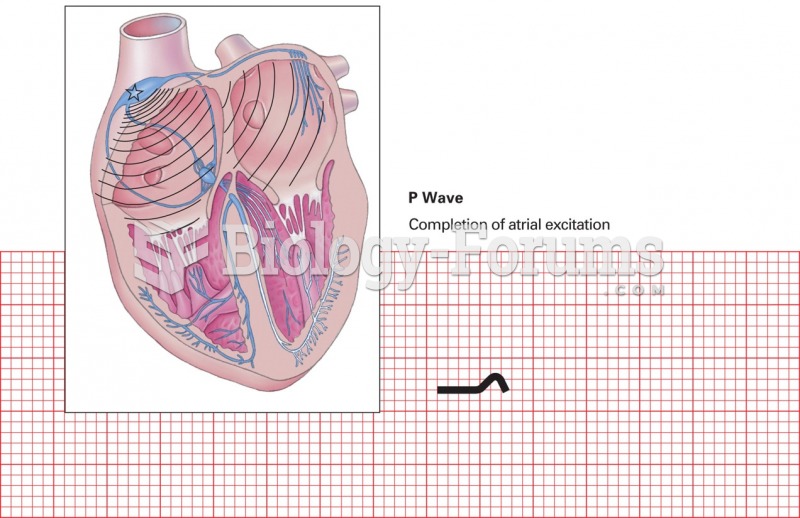|
|
|
Thyroid conditions cause a higher risk of fibromyalgia and chronic fatigue syndrome.
The top 10 most important tips that will help you grow old gracefully include (1) quit smoking, (2) keep your weight down, (3) take supplements, (4) skip a meal each day or fast 1 day per week, (5) get a pet, (6) get medical help for chronic pain, (7) walk regularly, (8) reduce arguments, (9) put live plants in your living space, and (10) do some weight training.
Patients who cannot swallow may receive nutrition via a parenteral route—usually, a catheter is inserted through the chest into a large vein going into the heart.
There are 20 feet of blood vessels in each square inch of human skin.
The human body produces and destroys 15 million blood cells every second.







